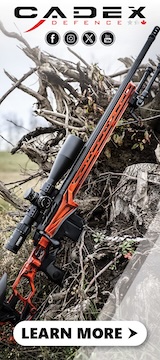Forged ones cracking are a much rarer situation, could have been poor lug contact, bad heat treatment, but doesn't happen often at least.
The M14 gas system is self regulating, once the piston is fully extended, gas vents out that little hole in the bottom of the gas cylinder. Adjustable gas plug won't hurt anything, but it's not really necessary.
Some interesting facts about Chinese forged bolts:
1) When SEI was working with Keng's on the chinese spec fo M14S rifles in the 1990's, China never did change the bolts to USGI equivalent alloy. After lots of effort to make them change their process, SEI just started using GI bolts in the chinese receivers because they were cheap and planetiful back then. It never got fixed.
2) USGI bolt alloy is supposed to be (in all but a very few cases) 8620H alloy steel except resulpherized sulpher content at 0.035 % to 0.50 % that is gun quality specification per ASTM A304, A322, or A331. The chinese bolts used a cheaper alloy that is not as strong and not heat treated the same way. It's generally fine, but no chinese bolt is as tough as a GI bolt.
3) Chinese bolts have universally shorter lugs by a few thou. They are not dimensionally identical to GI. This is why some chinese receivers won't take a GI bolt without either removing material from the bolt or receiver. Generally, the lowest risk solution if you have this situation is to remove material from the FRONT of the GI bolt lugs, though most builders will simply give up and get a different receiver. Sometimes they can also be lapped in if they are only out a few thou. Sometimes a GI bolt just drops in, it depends on the tolerances of a particular chinese receiver.
4) Most forged bolt failures, regardless of chinese or USA, are due to the use of reloads and reloading errors.
5) It's possible uneven bolt lug contact, over time, can cause a forged bolt to fail. Generally this is not common though, as most M14 pattern rifles, if out, are only out slightly and normal lug setback and tolerances allowing the bolt to tilt into contact results in a safe level of contact. For accuracy though, you do want even contact on a closed bolt prior to firing. This is why lapping is usually done - for accuracy improvement, not for safety reasons.
Without knowing the details of that forged bolt failure above, I don't see signs of creep cracking or fatigue beach marks based on the one low-res picture. While not definitive, and not knowing the details, I would guess it was an overpressure round causing sudden fracture - as is typical of a reloading error. But again, I have no details and the photos aren't good enough to fully judge the failure mechanism. I will say, 99.9999999% (unscientific, just my opinion based on years of observations) of forged bolt lug failures are from guys who swear they didn't make a reloading error but admit they were shooting reloads.






































































